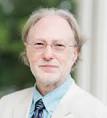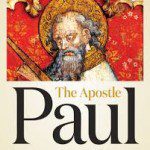 Dale C. Allison Jr. is the Richard J. Dearborn Professor of New Testament at Princeton Theological Seminary. Dale is a friend of mine. In 2003, he was our keynote speaker for the two-day Kermit Zarley Lectures at North Park University in Chicago. He spoke on good subject, “The Resurrection of Jesus.” Dale also endorsed my book, The Third Day Bible Code (2006). Dr. Allison is a leading New Testament scholar in the world. I like to read his works because he is so well-read, a careful scholar, and stimulating.
Dale C. Allison Jr. is the Richard J. Dearborn Professor of New Testament at Princeton Theological Seminary. Dale is a friend of mine. In 2003, he was our keynote speaker for the two-day Kermit Zarley Lectures at North Park University in Chicago. He spoke on good subject, “The Resurrection of Jesus.” Dale also endorsed my book, The Third Day Bible Code (2006). Dr. Allison is a leading New Testament scholar in the world. I like to read his works because he is so well-read, a careful scholar, and stimulating.
Dale Allison is a specialist in Christian eschatology. His book Night Comes was published by Eerdmans last year, in 2016. It is composed from lectures he delivered for the Stone Lectures at Princeton. Dale reveals in the preface (p. ix), “Eschatological subjects have long fascinated me. My honors thesis in college was on the eschatology of Jesus. It grew into my M.A. thesis, which grew into my PhD. thesis, which grew into my first book. And that wasn’t the end of it. I’ve continued throughout my academic career to write about eschatological subjects. This book, however, is different…. It’s rather, in large measure, a personal theological exploration. It’s an attempt to move from reconstructing the past to pondering the future…. Night Comes is a miscellany, a book of thoughts.” It consists of six chapters in 184 pages.
In chapter 1, “Death and Fear,” Dale reveals that he had a car accident at twenty-three years of age when a drunk driver plowed into his car. It resulted in Dale having a collapsed lung that almost killed him. He says it caused him to think about death a lot more the rest of his life. Dale then reveals (p. 11), like a lot us, “From an early age I’d been taught that the soul at death goes to heaven and, further, that on the day of resurrection, it’ll be reunited with its body for eternal life.” He adds that not long afterwards, “I learned that the idea of a soul bound for heaven was in disrepute.”
Allison then admits concerning eschatology in general, and the afterlife in particular (p. 13), “Three-and-a-half decades later, I remain full of questions. At the same time, I’ve drawn a few conclusions with which I’m almost comfortable.” Dale mentions “Sheol” on p. 16. This word appears in the Old Testament 67 times. It refers to the place of the dead and is the counterpart of the word “Hades” (which the Greeks called it) in the New Testament. But Dale doesn’t elaborate on it. He then says Catholic colleague John Dominic Crossan “doesn’t care” whether or not there is “life after death.” Dale adds, “For me, Christianity without hope beyond death is of reduced relevance and of diminished interest.” I really like this statement coming from such a brilliant fellow.
Chapter 2, “Resurrection and Bodies,” partly speculates the nature of the resurrection body. This is an endless subject, and rather fruitless I think, that Christians love to discuss at length. Dale begins (p. 19) with “the once famous conundrum. If the flesh of one becomes the flesh of another, and if, on the last day, both eater and eaten arise [in the resurrection], what will become of the [physical] particles belonging to both? To which body will God assign them?” That doesn’t intrigue me, but it does with Dale. I just conclude that God will work it out, so I move on to other things. More on this later.
I was surprised at this statistic which Dale relates (p. 25), “Recent surveys show little belief in bodily resurrection among Protestants and Catholics in Western Europe and the United States, even among those who recite the old creeds…. Indeed, in some polls of North Americans, Western Europeans, and Australians, belief in resurrection is less popular than belief in immortality of the soul, belief in reincarnation, and belief in extinction.”
Dale adds (p. 26), “These days, even many professing belief in resurrection don’t really believe.” He then cites some scholarly examples, such as Brunner and Streeter, and relates (p. 29), “I remember a dinner with N. T. Wright. Given that he has been so insistent that Jesus’ tomb was empty and that God will raise the dead for life on a refurbished earth, I asked him what he makes of all the old riddles, such as the puzzle of shared matter. Unruffled, he opined that Origen long ago had solved most of the issues. So, the great modern apologist for resurrection turned out to be less than a full literalist. His view wasn’t that of Jerome. He was rather closer to a church father [Origen] who minimized material continuity and thereby secured for himself widespread condemnation.” Interesting.
Dr. Allison then explores how it is that belief in resurrection has declined in recent centuries. He reports (pp. 30-31), “the deists gave up resurrection,… Deistic predilections worked their way into much of nineteenth-century German theology.”
Dale then relates (pp. 32-33), “In the middle of the twentieth century, Oscar Cullmann famously urged that the Bible teaches not immortality of the soul, a Greek idea, but resurrection of the dead, a Jewish idea.” Dale then admits, “At the risk of being both unbiblical and unscientific, I’m not on board…. One problem is the Bible, or at least the New Testament. Although a few have taken it to teach soul sleep and although William Tyndale (d. 1536), long before Cullmann, held the biblical idea of resurrection and the Hellenistic idea of immortality to be mutually exclusive, the New Testament doesn’t anticipate modern physicalism.” Dale then asserts that much of the New Testament says “the self or some part of it could leave the body and even survive without it.” The main verse on this is Jesus saying, “Do not fear those who kill the body but cannot kill the soul; rather fear him who can destroy both soul and body in hell” (Matt. 10.28; cf. Luke 12.5; all Bible references are from the NRSV unless otherwise noted).
In the late 1980s, I changed to believing in soul sleep and still do because I think the Bible better supports this view. Concerning Dale’s point about separation of soul and body, like Cullmann and Tyndale, I believe that upon death human souls go to Sheol, deep inside the earth, where they remain unconscious, awaiting resurrection. See my various posts on this. However, I agree with Dale in his saying (p. 42), “Yet neither the New Testament nor the dominant Christian tradition teaches that to die is to cease to be. Resurrection isn’t the gift of existence as such but the end of being ghosts.” I would merely change “ghosts” to souls-spirits.
Chapter 3, “Judgment and Partiality,” begins by Dale soon relating (pp. 46-47, “From the approximately 2,000 Sunday mornings I’ve gone to church, I recall no mainline Protestant pastor exhorting me to fear the judgment of God. Divine judgment also hasn’t been a hot topic in the e-mails I receive…. Why, despite the numerous biblical texts, are most mainstream pulpits mum about eschatological judgment? Part of the explanation must lie in the demise of hell.” Dale then mentions the influence of Jesus’ exhortation, “Do not judge,” in Matt. 7.1, and the story of the adulterous woman in John 8.2-11, in which Jesus said, “Let anyone among who is without sin be the first to throw a stone at her.” But I believe they are largely misunderstood. See my post on 4/17/15 about the adulterous woman, “What Did Jesus Write on the Ground?”
Dale Allison (p. 49) says Paul’s teaching on “works,” “grace,” and “the judgment” causes “a well-known puzzle…. There seems to be, in Paul, a formal contradiction between judgment by works and justification by faith.” Dale (p. 50) says this results in some “disregarding the doctrine of judgment…. Luther, who boldly insisted that ‘the judgment is abolished; it concerns the believers as little as it does the angel… We who believe shall not be judged…. All believers pass from this life into heaven without any judgment.’” Dale also relates (p. 51), “In the fourth century, Jerome, influenced by John 5:24 … insisted that faithful Christians will not be judged, that only the wayward need much worry.” No to all of this! All believers do not die and go to heaven, but to Sheol to await resurrection and then the judgment. Then their works will be made known and rewards given accordingly (e.g., Matt. 16.27; Rom 2.16; 14.10; 2 Cor. 5.10).
The book of Revelation says there will be “a great white throne” judgment, when “books were opened” and “the dead were judged according to their works, as recorded in the books” (Rev. 20.11-12). Dale likes Augustine’s view of this (p. 54), that the “books” are not literal but “a kind of divine power which will ensure that all the actions, good and bad, of every individual will be recalled to mind and presented to the mind’s view with miraculous speed, so that each person’s knowledge will accuse or excuse his conscience, and thus each and all will be judged simultaneously…. These words,… Aquinas and other theologians later endorsed.”
That is interesting, but I think somewhat shortsighted. In my book, Warrior from Heaven, I have a chapter entitled “Judgement.” To write it, I joined together all Bible texts on this subject and then wrote about them as if I was there, reporting events like a journalist. (The whole book is written this way, with thousands of the biblical texts appearing in the margins.) In the subhead “The Saints Are Judged,” I have the following section on pp. 163-64 (here without references):
“Judgment begins and books are opened. All those people who belong to God and Christ have their names written in the Lamb’s Book of Life. Everything they have ever done is read aloud from the other books. These can be characterized as the books of deeds. So many things are recalled to their minds and the minds of others. Some of their works are good and some are not. Everyone except Jesus had sinned to one degree or another.
“The main difference between people is whether God has forgiven them of their sins due to faith in Jesus’ atoning death on the cross. If they have, their names are written in the Lamb’s Book of Life. If they really did believe, their life on earth would have manifested it to some degree. For good works are the evidence of genuine faith. Yet no one is justified before God because of his or her works. It’s just that their works demonstrate the quality of their faith.
“Everyone is judged impartially according to his or her deeds, both good and bad. Everything is taken into account, including privilege, opportunity, gifts, abilities, and knowledge.
“Those who knew more, or had more opportunity, are judged more severely. Those who were given much, from them much more is required. Everyone must give an account of what they have done with what they have been given.
“All secrets are made known. Whatever was covered is now revealed, and that which was hidden is now made known. What was said in darkness is heard in the light, and that which was whispered behind closed doors is proclaimed from the rooftops. Even motives are disclosed, for Jesus had taught that all words and deeds originate from the heart.
“Anyone who made a profession of faith in God and his Christ, yet habitually practiced sin as a lifestyle, does not receive eternal life. For anyone who did not respect Jesus’ teachings enough to obey his commandments to some extent, this is prime evidence that that person did not really follow him nor therefore belong to him.
“As people stand before the judgment seat of Christ, their works are tested by fire. Those deeds done in the power of the Spirit of God survive the test. Such works are like gold, silver, and precious stones, all of which survive fire.
“Some folks are forgiven, yet they sadly experience temporary shame, disappointment, and tears. Works that they produced by their own fleshly power and selfish desires are consumed in the flame. These works burn up like wood, hay, and stubble in a bonfire. All such people suffer loss of reward; yet they retain their gift of eternal life. In their lives, they had just enough faith to escape the fiery flames of hell. Such is the grace of God.
“Jesus now pronounces the comforting words, “I will forgive their wickedness and will remember their sins no more.” It is as if he casts all of their sins into the depths of the sea, or as far away as the east is from the west. Then he wipes away all tears from their eyes.
“Those people whose works survive the fire are rewarded, some very bountifully. They rejoice in hearing their master declare to them, “Well done, good and faithful servant! You have been faithful with a few things; I will put you in charge of many things. Come and share your master’s happiness.” They are made priests of God, kings of nations, rulers of cities, and judges over many peoples. They will not govern with a fainthearted authority, but rule with justice and a rod of iron.
“Those most righteous are rewarded the most. The wise now shine like the brightness of the heavens. And those who had led many to righteousness light up like the stars forever and ever. The Judge now invites those who overcame trials and tribulations for their faith, especially the holy martyrs, to forever sit with him in his glorious throne. Thus, those who followed him most closely in their earthly life now sit nearest him forever.”
Dale then relates several near-death-experiences (NDE) people have reported in which they think they experienced “the other side.” I think these are meritless and that we should only be impacted by what the Bible says about afterlife. I also highly recommend Alan F. Segal’s book, Life after Death: A History of the Afterlife in Western Religion (Doubleday, 2004, 866 pp.). He shows that the early Christians believed only in hope of resurrection and that later Christians believed in immortality of the soul and going to heaven at death, which originated in Hellenism.
In chapter 4, “Ignorance and Imagination,” Dale reveals (p. 71), “During the early 1970s, I spent a year among middle-class evangelicals of the dispensationalist variety. The ardently discussed Hal Lindsey’s The Late Great Planet Earth, and they expected to raptured to heaven in short order.” Well, I was a full-fledged Dispensationalist from 1959 to 1971. My Still Here book series on eschatology is a result of that. Dale then cites negative impacts from how some people use their eschatology, such as expecting Christ’s near return and thus desist in doing good deeds.
Dale then presents what I think is a somewhat negative, even cynical, view of Bible eschatology. He says (p. 82), “The future is never clear, not even in prophecy … the relevant biblical texts aren’t history written ahead of time.” He adds (pp. 83-84), “Heaven and hell are myths,… Eschatology is sketchy fiction, not miraculous foreknowledge…. The Dispensationalists’ bogus rapture is fiction.” I agree only with this last sentence.
Dr. Allison then recounts (p. 88) that “Johannes Weiss and Albert Schweitzer, over a hundred years ago, famously argued that the kingdom of God was, for Jesus, eschatological in the strict sense of the word…. They were correct.” I agree. Dale accepts, as many distinguished scholars do, the conclusion of Weiss and Schweitzer that Jesus “proclaimed the near advent of God’s kingdom” (p. 89). I think that is a misunderstanding of “generation” in Matt. 24.34/Mark 13.30. Jesus said two verses later that he did not know when the end (=his return) would come. He only said in that discourse it could happen soon, not that it would. He said only the Father knew. As we know from Jesus’ other teachings, he indicated that it depended to some degree on the Jews’ penitence (e.g., Matt. 3.2; 4.17; Acts 1.7; 3.19-21).
In chapter 5, “Hell and Sympathy,” Dale begins humorously by divulging (p. 93), “I’m a lousy evangelist…. It was 1972, and I was attending a youth rally in Dallas, Texas. One afternoon, my group leader instructed me to ring the doorbell of every house on a particular block. When someone came to the door I was to share the good news, pray for God’s blessing, then check off the address on my clipboard. Being a severe introvert, I was mortified. Knowing the task to be impossible, and persuaded that lying is wrong, I sneaked up to the first door, rang the bell, then ran and hid in the bushes. After a woman answered the door, stared in confusion, then turned back inside, I moved on to the next house to repeat the procedure. I returned the clipboard, a check mark in front of each address.” I got a big chuckle out of this.
Dale again quotes Augustine, saying (p. 97), “eternal punishment appears harsh and unjust.” I once asked my friend Dr. Scot McKnight about this, and he said he still believes in eternal punishment because of Jesus saying “eternal punishment” in Matt. 25.46. I moved away from this view in the late 1980s when I adopted soul sleep. I now believe more like Isaac Newton and John Locke did, whom Dale says “opted for conditional immortality, the view that the wicked will be annihilated” (p. 98). Actually, these are two views that usually are held together.
Allison then says (p. 99), “Charles Darwin, who originally studied for the ministry and knew some theology, wrote this in his Autobiography: ‘I can indeed hardly see how anyone ought to wish Christianity to be true; for if so the plain language of the text seems to show that the men who do not believe,… will be everlastingly punished. And this is a damnable doctrine.’”
Dale then unveils his phenomenal memory by relating (p. 100), “I’ve been in church most Sunday mornings for almost sixty years now, and I recall only two sermons on hell.” One was that there is no hell. Dale concludes that “the idea of hell … has, of late, floundered.” He then mentions that John Stott, who was England’s leading evangelical, became an annihilationist and wrote, “Emotionally, I find the concept of eternal torment intolerable.”
Allison then relates that in the twelfth century (p. 108-09), “torture made,… a comeback among Christians. It wasn’t long before Aquinas conceded that torture can be ‘in accord with the requirements of justice,’ and not long before Pope Innocent IV authorized torture for the First Inquisition…. when the West began to have second thoughts about torture, it began to have second thoughts about hell. If God is just, and if torture is unjust, then how can God practice it? Growing opposition to torture roughly coincided with growing opposition to hell.”
Dale then asks (pp. 110-12), “But what then,… should we make of the biblical texts about hell?” He answers, “I can’t be objective here” because he admits that his culture has influenced him. He continues, “even if we could detach Jesus from hell, that wouldn’t get the doctrine off the pages of the New Testament.” Yes but hell/hades appears twelve times in the New Testament, and eleven of them purportedly were said by Jesus. Dale then explains, “hell can’t be eternal, because the relevant expression, eis ton aiona, while habitually translated ‘forever,’ doesn’t mean that. Rather, the phrase and its Semitic equivalents, such as the Hebrew, ad-olam, refer, as often as not, to an indefinite or extended period of time…. aionios does not mean ‘eternal’; it acquires this meaning only when it refers to God.”
The professor then voices a frustrating reality in this context about hell. He says, (p. 115), “It’s equally unclear how so many can be literal about one thing, figurative about another.” Dale concludes (p. 118), “If hell is eternal then I am an atheist.” For me, the wicked literally are cast into a burning hell, as Jesus figuratively stated repeatedly. Then they are annihilated, perhaps at different stages of time. Why? Remember that above quote about Jesus saying “fear him who can destroy both soul and body in hell” (Matt. 10.28)? Destroying the soul seems to mean annihilation. Plus, Jesus said born-again people “shall not perish [Gr. apoletai] but have eternal life” (John 3.16 NIV). So, people perishing seems to mean going out of existence. Yet I can imagine hell—actually, “the lake of fire” (Rev. 20.14-15)—still being eternal. For we read, “the devil who had deceived them was thrown into the lake of fire and sulfur, where the beast and the false prophet were, and they will be tormented day and night forever and ever” (Rev. 20.10).
In chapter 6, “Heaven and Experience,” Dale explores various views of afterlife and heaven. He says (p. 125), Wycliffe and John Milton “endorsed the doctrine of soul sleep. This allowed them to put all the emphasis upon resurrection at the end of time…. I’m not in this camp.” He says N. T. Wright “doesn’t totally dismiss ‘going to heaven’ … at death, prefers not to say much about the place…. [except] ‘going to heaven’ isn’t what Christian faith is all about.” Allison confides (p. 126), “One sympathizes to some extent with Wright’s reticence vis-à-vis ‘heaven.’” I agree. My view on this is that we don’t go to heaven; rather, heaven comes down here to us as depicted concerning heavenly, new Jerusalem portrayed in Rev. 21-22.
Dale reveals next, “I’m not a premillennialist, a postmillennialist, or an amillennialist. My inclination is to suppose that the future is open, and that while divine victory within the arena of eternity is assured, God triumph within this world isn’t.” But how can this be reconciled with Jesus’ teaching on prayer to God, “Your kingdom come, your will be done, on earth as it is in heaven” (Matt. 6.10)? I think Jesus intended this statement not as a prayer request, as most people believe, but as a faith-affirmation that this will indeed occur. (I’m a classic/historic premillennialist.)
Dale explores the belief of a few church fathers that God’s people will become angels at the resurrection (pp. 128-33). I think this is ridiculous, but Dale thinks it may happen. Yet so advocating, he fails to distinguish the biblical view of angels being either God’s or Satan’s (e.g., Rev. 12.7-9), which he no doubt knows. Yet Dale says (p. 133), To think of an angel is inevitably to think of God, because it is to think of a creature with no existence or purpose apart from God.” I maintain that the Bible sometimes refers to God’s angels as “the holy angels” (Mark 8.38; Luke 9.26; Rev. 14.10) to distinguish from unholy angels. Jesus says of his return, “the Son of Man is to come with his angels” (Matt. 16.27). If believers become angels at resurrection, what does that make the risen Jesus since we read, “we will be like him” (1 John 3.2)? Moreover, the author of Hebrews argues strenuously that the risen Jesus is not an angel, but superior to them (Heb. 1.4-14). Gnostics believed Jesus was not human but a spirit or an angel.
Dr. Allison cites Jewish literature and patristics about this, but without interacting with contemporary scholars. He supports this view, called “angelic transmogrification,” by quoting Jesus in Luke in the RSV as saying (p. 129), “Those who are accounted worthy to attain to that age and the resurrection from the dead … cannot die anymore, because they are equal to the angels” (Luke 20.35-36). The word in the Greek text here translated “equal” is the compound isaggeloi. Aggelos is the Greek word for “angel.” Is/isos does mean “equal;” but it also can be translated “like,” in which isopsuchos means “like-minded. This is the only occurrence of isaggelos in the Greek New Testament. Since Matthew (22.30) and Mark (12.25) have hos angeloi for this pericope, which clearly means “like angels,” that is how it should be taken in Luke, and most versions have it this way. Finally, the NRSV agrees by having changed v. 36 to begin, “Indeed they cannot die anymore, because they are like angels.” Most commentators rightly interpret Jesus, here, to mean that resurrected humans will no longer be married and procreate, just as angels are. Many would add, as I think, that they will no longer be male or female.
Dale then surmises how “heaven” and “paradise” have been conceived. Then he says (p. 148), “As for mapping the future with the Bible, that’s even more problematic. Scripture offers no consistent teaching about life after death or the world to come.” This is what I specialize in, so I strongly disagree. Yet I’m very aware of past wreckage of prognosticators. Yet Dale concludes this book very well by disclosing his book title in a personal way (p. 150), “aging… reminds me that night comes. My hope is that light shines in the darkness.”













